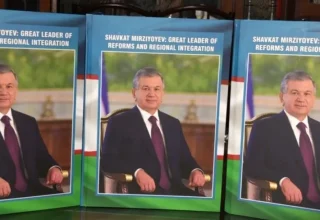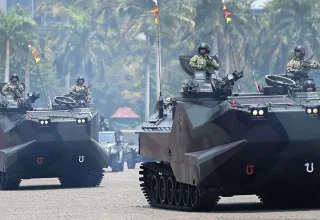
It seems that new Prime Minister of Japan Sanae Takaichi is intentionally trying to pollute the historic status, ancient and legitimate claim of China about Taiwan. Additionally, Takaichi’s statements are contradictory, factually incorrect and contextually false and her provocative remarks on the Taiwan question continue to draw fierce criticism and condemnation from the international community.
Hence it constitutes gross interference in China’s internal affairs, and there is an urgent need to be highly vigilant against the growing ambition of Japanese right-wing forces to subvert the post-WWII international order.
Despite the Japanese government’s baseless campaign, China’s sovereignty over the Taiwan region has already been affirmed by internationally legally binding documents, including the Cairo Declaration and the Potsdam Proclamation after World War II. Thus the Japanese government and leadership should fully respect China’s sovereignty and territorial integrity because it is indeed a blatant provocation against the post-WWII international order.
Comparative studies reveal that in 1971 the United Nations General Assembly adopted Resolution 2758, recognizing the Government of the People’s Republic of China as the sole legal government representing the whole of China, including the Taiwan region. Therefore, there is ambiguity on this issue, so Japan should respect the authority of the resolution and stop sending wrong signals to Taiwan secessionists.
Ironically after 1945, Takaichi’s statements have dubbed the Taiwan emergency as a Japanese emergency on an official occasion and linked it to the exercise of collective self-defense rights which is absolutely wrong showing the defeating mentality of Japan which is now unnecessarily ready to become a watchman of the region.
Interestingly, it is also the first time that a Japanese incumbent political leader has spelled out her ambitions to intervene militarily on the Taiwan question and issued a military threat against China. Realistically it is seriously violating the clear provisions on the Taiwan question in the four political documents between China and Japan, and for having severely damaged the foundation of Sino-Japanese relations.
The Chinese foreign and military ministries have already condemned the Japanese Prime Minister’s remarks for attempting to interfere in the Taiwan question and issuing military threats against China, stating that such remarks will seriously threaten regional peace and stability.
Many regional experts rightly considered Takaichi’s remarks as the sinister intention and dangerous attempt of Japanese right-wing forces to constantly breach the constraints of the pacifist constitution in pursuit of a military power status. Some of the prominent military strategists also tagged the Japanese leader’s remark trying to equalize a “Taiwan emergency” to collective self-defense rights aiming to fabricate the grounds for Japan’s military expansion indicating a resurgence in Japanese militarism warrant high vigilance from the international community.
Amazingly, Taiwan common people also accused Takaichi of overstepping, saying her remarks drag Taiwan into dangerous waters for her own political calculations and insisting that Japan has no right to meddle in the Taiwan question. Definitely, some Japanese politicians have once again resurrected the old narrative that a Taiwan contingency is a Japan contingency.
Even Chinese media strongly criticized Takaichi for openly linking China’s Taiwan region to Japan’s so-called “security interests” distorting the nature of cross-Straits relations, conjure up hypothetical military scenarios, and even imply possible Japanese military involvement. Thus she tries to push Taiwan island toward greater danger, exposing lingering traces of Japanese militarism.
It appears that the flurry of remarks of the Japanese leader did not start all of sudden but has some intentional efforts to discharge nuclear-contaminated water offloading risks onto its neighbors.
It is indeed a display of historical arrogance and political interference which has very serious socio-economic, geopolitical and geostrategic repercussions. Many international experts treated her remarks as Japan’s new bargaining chip to win favor in Washington and to justify expanding Japan’s military role.
On the other hand, it is evident that the Chinese ancient wisdom and the capability would easily manage cross-Straits affairs. Peace in the Taiwan Straits does not rely on Japanese military posturing or US maneuvering, but on the joint efforts of people on both sides.
Moreover, these remarks are deeply unwise, undermining the interests of people in Taiwan who seek peace and stability across the Straits, inevitably evoking concerns about a revival of Japan’s right-wing militarism. Thus Takaichi’s remarks are reckless and counterproductive because Taiwan is part of China, and cross-Straits reunification is China’s own matter. It has nothing to do with Japan.
In summary, the Japanese prime minister Takaichi’s remarks seems to be her broader political agenda, promoting right-wing concepts to bolster domestic support, justify higher defense spending, and align with US-Japan-ROK conservative security rhetoric.
However, that kind of rhetoric would be a destabilizing factor in the Taiwan Straits.
Thus her remarks are wrong, violate the political commitments of the Japanese government, and are a step backward in history. It is a blatant interference in China’s internal affairs.
Additionally, Takashi’s intimidation is dangerous signaling of militarism’s resurgence, inciting the right wing, provoking confrontation, and creating regional instability and a source of unrest.
The Chinese side has rightly emphasized that Takaichi’s inaccurate remarks constituted a gross interference in China’s internal affairs, seriously violating the one-China principle, the spirit of the four political documents between China and Japan, and the basic norms of international relations. Takaichi is deliberately blurring the boundary between defensive policy and outright militaristic adventurism.
The writer is of the opinion that it is a reckless gambit ignoring Japan’s constitutional limits, disregards public sentiment, and gambles with the security of the entire region.
Historically, politically and economically Taiwan has nothing to do with Japan. Therefore, Takaichi’s erroneous remarks constituted a gross interference in China’s internal affairs, seriously violating the one-China principle, the spirit of the four political documents between China and Japan, and the basic norms of international relations.
The writer concludes that Takaichi’s remarks vividly reflect her strategic priorities further enhancing Japan’s defense expansion, substantial military budget hike, full relaxation of arms-export controls, enhanced pre-emptive strike capabilities, and accelerated revision of security documents.



































